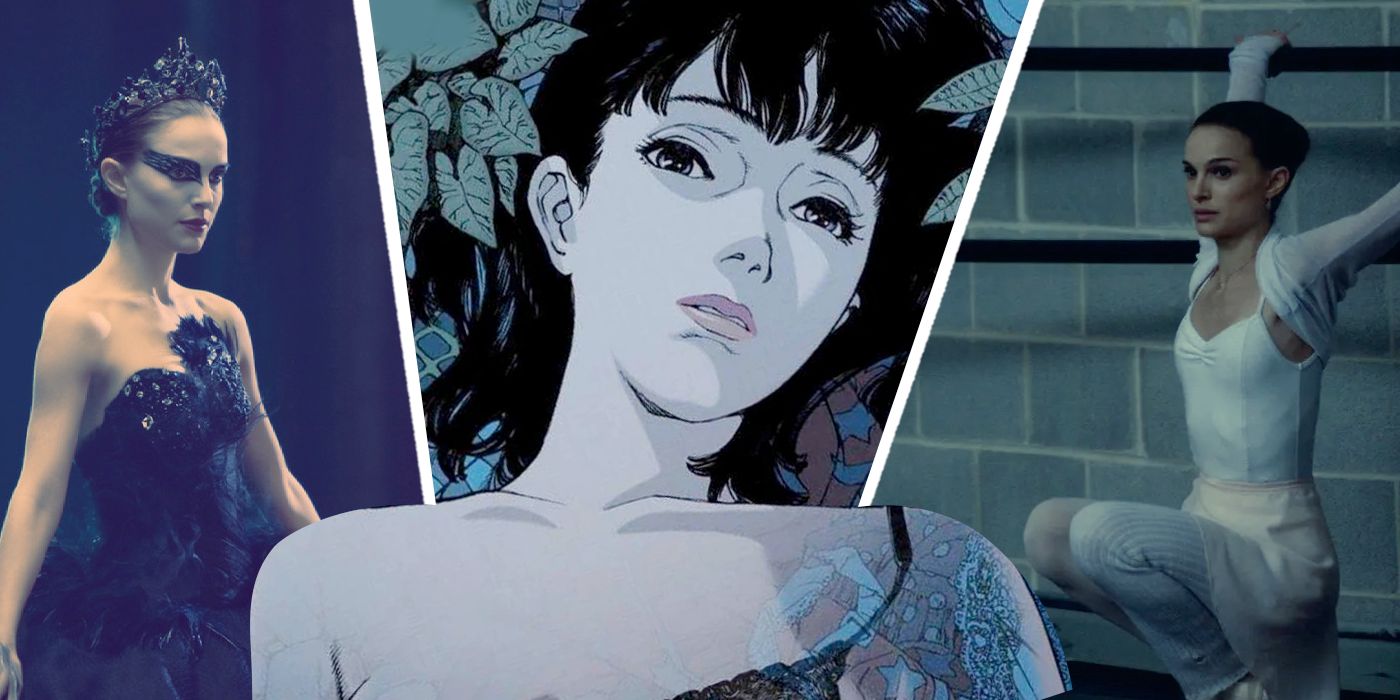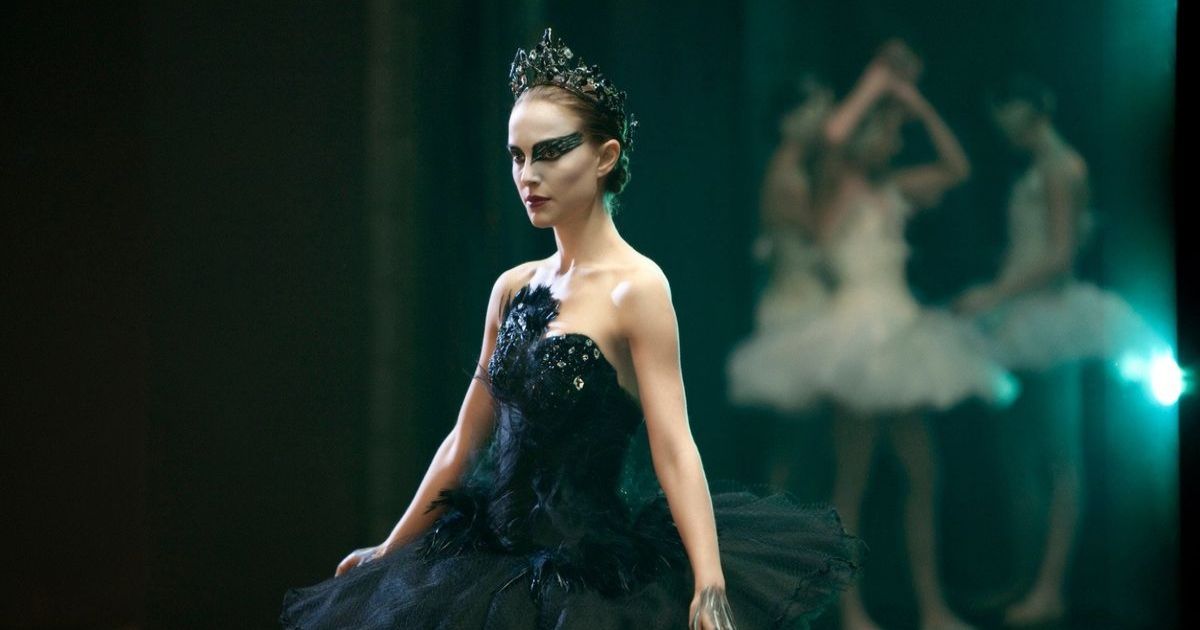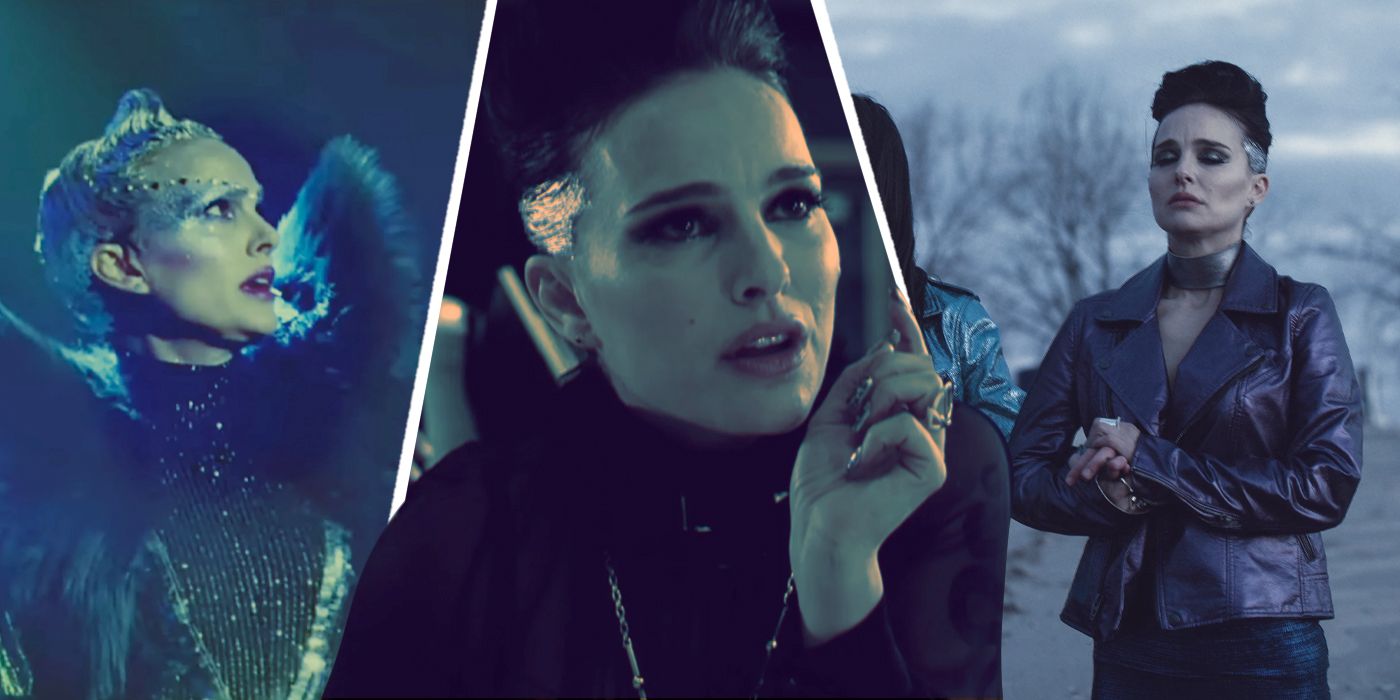Summary
- Similar to Black Swan, Vox Lux delves into the dark side of fame through Natalie Portman's captivating performance as a troubled pop star.
- Despite commercial differences, both films share themes, choreographers, and visual cues, providing a haunting look at celebrity obsession.
- Portman's portrayal of characters spiraling into self-destruction showcases the high psychological toll of fame in deliriously impactful ways.
Written and directed by Brady Corbet, Vox Lux is an underrated musical drama released in 2018. Natalie Portman stars as Celeste Montgomery, a mega pop star promoting her sixth album, Vox Lux, who grapples with fame, celebrity, and childhood trauma relating to a terrorist act. Between the experimental structure, stylish visuals, and delirious performance by Portman, many have compared the film to Black Swan, Darren Aronofsky's balletic horror movie that earned Portman a Best Leading Actress Oscar in 2011.
Apart from the similar themes that probe the price of fame and the psychological toll of being in the public eye, Vox Lux shares one of the primary locations and the chief choreographer from Black Swan. Although Vox Lux was nowhere as commercially successful as Black Swan, earning just $1.4 million against an $11 million budget (via Box Office Mojo), it's worth noting the eerie similarities between the two showbiz movies anchored by deeply committed and convincing performances by Natalie Portman.

Vox Lux
- Release Date
- September 7, 2018
- Director
- Brady Corbet
- Cast
- Natalie Portman , Jude Law , Raffey Cassidy , Willem Dafoe , Christopher Abbott , Jennifer Ehle
- Main Genre
- Musical
- Runtime
- 112
- Writers
- Brady Corbet
What is Vox Lux About?
Directed by Brady Corbet from a story co-written by Mona Fastvold, Vox Lux begins in Staten Island in 2000. A school shooting takes place reminiscent of the infamous Columbine High School massacre in Colorado. A 13-year-old named Celeste (Raffey Cassidy) comes face to face with the shooter and insists on praying with him. Celeste's act of grace does not work, and the boy shoots his classmates and himself, leaving Celeste as one of the few survivors. This traumatic incident stays with Celeste for the rest of her life, even 17 years later when she rises as one of the world's most beloved pop stars in the quasi-concert movie.
Following the devastating school shooting, Celeste rests and recovers in New York and begins writing music with her older sister, Eleanor (Stacy Martin). At age 14, Celeste experiences more trauma when an older musician impregnates her and Eleanor begins sleeping with Celeste's music manager. Celeste's big break comes following the 9/11 attacks in New York, where her first hit single plays on the radio. Once she shoots a music video for her song "Hologram," the movie jumps 17 years ahead, introducing Natalie Portman 53 minutes into the film.
By 2017, Celeste rules the music world as a world-famous pop star promoting her sixth studio album, Vox Lux. While preparing a concert tour to support her new album, Celeste is told about a terrorist attack in Croatia that appears to be inspired by her "Hologram" music video. The terrorists wear masks that are nearly identical to the ones seen in the music video. Despite being triggered by the event and overwhelmed by her PTSD from the school shooting, Celeste's agent insists on promoting the album publicly.
Grappling with her grief, Celeste binges on alcohol and follows a path of self-destruction. Her past substance abuse is revealed to go beyond recreational drugs as Celeste becomes addicted to imbibing household cleansers. At her lowest moments, Celeste stabs her eye while intoxicated on methanol and hits a man in her car while under the influence. The final act of the concert film showcases Celeste's dazzling stage performance after she confesses to Eleanor that, following the school shooting, she made a deal with the devil to become successful.

Did Natalie Portman's Black Swan Really Rip Off a Popular Anime?
How much does Darren Aronofsky's film, Black Swan, actually share in common with Satoshi Kon's masterpiece, Perfect Blue?Comparisons to Black Swan
In Black Swan, Portman won an Oscar for her performance as Nina Sayers, an innocent and infantile ballet dancer with big dreams. When Nina wins the prized dual role as the Black and White Swan in a theatrical production of Swan Lake, Nina's timid reluctance turns into a maddening obsession as she prepares for the role and strives for perfection. Oppressed by her mother's rule and repressed by her lack of sexuality, Nina psychologically unravels as her big performance nears.
As Nina loses her grip on reality, she begins hallucinating surreal imagery that makes her believe she is genuinely turning into a black swan. Nina projects a fierce rivalry with her understudy, Lily (Mila Kunis), whose identity slowly bleeds into her own as the final act builds palpable tension and suspense. The crucial confrontation with Lily comes in Nina's backstage dressing room before the debut performance of Swan Lake, where a violent showdown sets up a feverish finale that underscores the price of fame, celebrity, ambition, and desirous obsession.

Best Natalie Portman Movies, Ranked
Natalie Portman's acclaim has only risen across her more than 50 films in less than 30 years, and these are her best movie performances yet.Before delving more into the thematic similarities, it's worth noting that the backstage dressing room in Black Swan is the same room used in Vox Lux when Celeste breaks down before her concert (seen above). Both scenes occur just before the critical stage performance that informs the fate of the Portman characters. In Black Swan, the performance ends with Nina's suicidal fall from grace as she reaches perfection through art.
In Vox Lux, Celeste is already dead inside due to the Faustian bargain she made with the devil as a teenager. Visually, both movies become more surreal as they unfold, with Portman's performances also becoming more delirious as her characters lose touch with reality. Even the black feathery costumes in both final performances appear similar.
Adding to the similarities, dance choreographer Benjamin Millepied, performed duties on Black Swan and Vox Lux. Portman and Millepied met while making Black Swan before getting married in 2012. The two recently got divorced in March 2024. Without getting into their off-screen relationship, the point is that both movies share themes, physical spaces, and collaborators beyond Portman. As such, it's easy to view Vox Lux as a bizarre Black Swan, especially for its underlying message about fame and the dark side of celebrity.
The Price of Fame
At their core, Black Swan and Vox Lux focus on the consequences of achieving fame, no matter the cost. In Nina's case, the cost is death. In Celeste's case, the price is living a soulless existence. To accentuate Portman's immersive performances, talented filmmakers Darren Aronofsky and Brady Corbet imbue each movie with a visual panache that increases as the movie progresses.
The more delirious and out of touch Portman's characters become, the more surreal and nightmarish each movie's visual tableau becomes. As such, both movies build incredible tension and suspense that leads up to a showstopping third-act stage performance where Portman's physical instrument echoes her characters' mental state.
Although Vox Lux is nowhere near as popular or acclaimed as Black Swan, the similarities are clear. Portman deserves credit for boldly playing deeply flawed characters who go to extremes to achieve and maintain celebrity status. The final image of Celeste's friends and family watching a hollow facade perform on stage in Vox Lux is eerily reminiscent of Nina's self-sacrifice in Black Swan, where not even the prospect of death can save the characters from their craven ambitions.




